Background
David Richards was born on March 4, 1944 in the United States.

Cambridge, MA 02138, USA
David Richards studied at Harvard University, where he received a Bachelor of Arts in 1966 and a Juris Doctor in 1971.
Oxford OX1 2JD, UK
In 1970, Richards earned a Doctor of Philosophy at Oxford University.
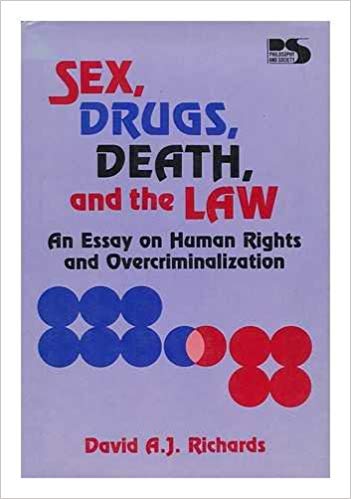
(Among the most commonly argued legal questions are those ...)
Among the most commonly argued legal questions are those involving 'victimless' crimes--consensual adult sexual relations (including homosexuality and prostitution), the use of drugs, and the right to die. How can they be distinguished from proper crimes, and how can we, as citizens, judge the complex moral and legal issues that such questions entail?
https://www.amazon.com/gp/product/0847670635/?tag=2022091-20
1982
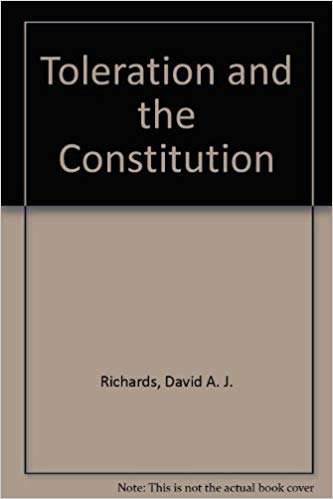
(This work develops a general theory of constitutional int...)
This work develops a general theory of constitutional interpretation based on an original synthesis of political theory, history, law, and a larger approach to the interpretation of culture.
https://www.amazon.com/gp/product/019504018X/?tag=2022091-20
1986
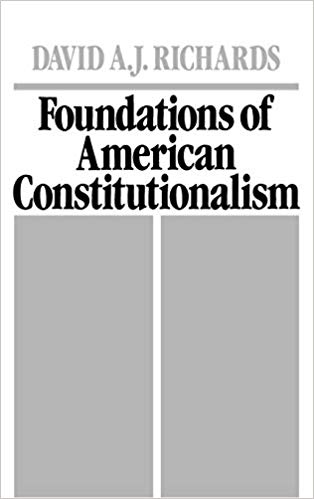
(Examining the Founders' humanist analytical methods and w...)
Examining the Founders' humanist analytical methods and working assumptions, this book combines history, political philosophy, and interpretive practice as it demonstrates an alternative exegesis of the Constitution. It clarifies a wide range of interpretive issues of federalism, enumerated rights (religious liberty and free speech), unenumerated rights (the constitutional right to privacy), and equal protection.
https://www.amazon.com/gp/product/0195059395/?tag=2022091-20
1989

(At stage center of the American drama, maintains David A....)
At stage center of the American drama, maintains David A. J. Richards, is the attempt to understand the implications of the Reconstruction Amendments--Amendments Thirteen, Fourteen, and Fifteen to the United States Constitution. Richards evaluates previous efforts to interpret the amendments and then proposes his own view: together the amendments embodied a self-conscious rebirth of America's revolutionary, rights-based constitutionalism.
https://www.amazon.com/gp/product/0691630194/?tag=2022091-20
1993
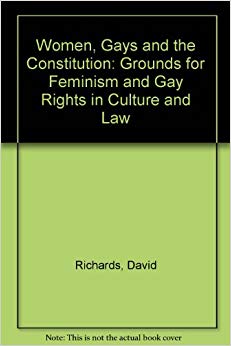
(In this remarkable study, David A. J. Richards combines a...)
In this remarkable study, David A. J. Richards combines an interpretive history of culture and law, political philosophy, and constitutional analysis to explain the background, development, and growing impact of two of the most important and challenging human rights movements of our time, feminism and gay rights.
https://www.amazon.com/gp/product/0226712060/?tag=2022091-20
1998
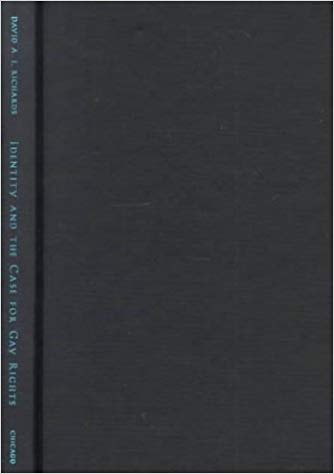
(In this enlightening study, legal scholar David Richards ...)
In this enlightening study, legal scholar David Richards explores the connections between gay rights and three successful civil rights movements—black civil rights, feminism, and religious toleration—to determine how these might serve as analogies for the gay rights movement.
https://www.amazon.com/gp/product/0226712087/?tag=2022091-20
1999
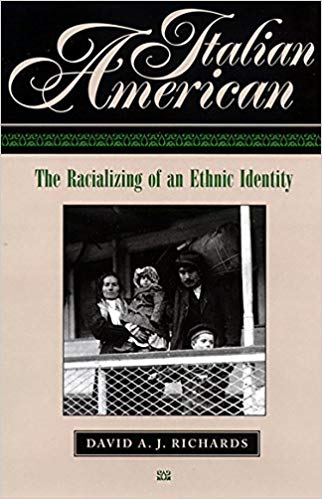
(When southern Italians began emigrating to the U.S. in la...)
When southern Italians began emigrating to the U.S. in large numbers in the 1870s-part of the "new immigration" from southern and eastern rather than northern Europe-they were seen as racially inferior, what David A. J. Richards terms "nonvisibly" black. The first study of its kind, Italian American explores the acculturation process of Italian immigrants in terms of then-current patterns of European and American racism.
https://www.amazon.com/gp/product/B010THRDIK/?tag=2022091-20
1999
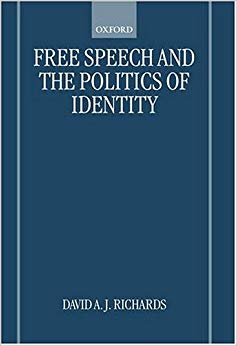
(Free Speech and the Politics of Identity challenges the s...)
Free Speech and the Politics of Identity challenges the scholarly view as well as the dominant legal view outside the United States that the right of free speech may reasonably be traded off in pursuit of justice to stigmatized minorities. The book's innovative normative and interpretative methodology calls for a new departure in comparative public law, in which all states responsibly address their common problems, not only of inadequate protection of free speech, but also correlative failure to take seriously the continuing political power of such evils as anti-Semitism, racism, sexism, and homophobia.
https://www.amazon.com/gp/product/0198298862/?tag=2022091-20
2000

(What is tragedy? This work argues that it is, at once, ar...)
What is tragedy? This work argues that it is, at once, art and science - an absorbing art and precisely observed empirical inquiry into human psychology, whose subject matter is the dilemma of manhood under democracy. The author expands discussion of the idea of the tragic to include music drama in general and the operas of Verdi in particular, and explores the indispensable contribution of tragedy to an understanding of personal and political psychology through discussion of: the political theory of structural injustice resting on the suppression of voice; a developmental psychology of gender; and an interpretation of tragic art.
https://www.amazon.com/gp/product/1845190416/?tag=2022091-20
2004
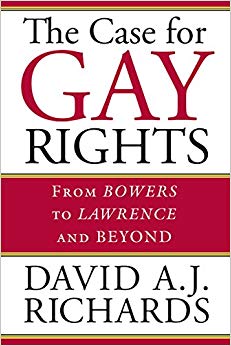
(As Americans wrestle with red-versus-blue debates over tr...)
As Americans wrestle with red-versus-blue debates over traditional values, defense of marriage, and gay rights, reason often seems to take a back seat to emotion. In response, David Richards, a widely respected legal scholar and long-time champion of gay rights, reflects upon the constitutional and democratic principles—relating to privacy, intimate life, free speech, tolerance, and conscience-that underpin these often heated debates.
https://www.amazon.com/gp/product/B01E7X0YF6/?tag=2022091-20
2005
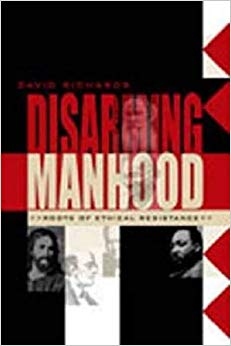
(In Disarming Manhood: Roots of Ethical Resistance, David ...)
In Disarming Manhood: Roots of Ethical Resistance, David A.J. Richards examines the lives of five famous men—great leaders and crusaders—who actively resisted violence and presented their causes with more humane alternatives.
https://www.amazon.com/gp/product/0804010749/?tag=2022091-20
2005
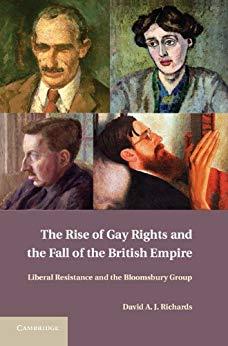
(This book argues that there is an important connection be...)
This book argues that there is an important connection between ethical resistance to British imperialism and the ethical discovery of gay rights. By closely examining the roots of liberal resistance in Britain and resistance to patriarchy in the United States, this book shows that fighting the demands of patriarchal manhood and womanhood plays an important role in countering imperialism.
https://www.amazon.com/gp/product/B00CARIDBO/?tag=2022091-20
2013
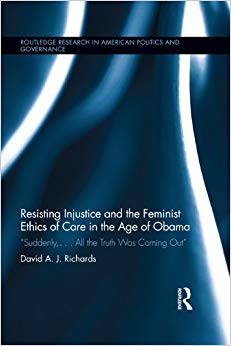
(David A. J. Richards’s Resisting Injustice and The Femini...)
David A. J. Richards’s Resisting Injustice and The Feminist Ethics of Care in The Age of Obama: "Suddenly,…All The Truth Was Coming Out" builds on his and Carol Gilligan’s The Deepening Darkness to examine the roots of the resistance movements of the 1960s, the political psychology behind contemporary conservatism, and President Obama’s present-day appeal as well as the reasons for the reactionary politics against him.
https://www.amazon.com/gp/product/B00IOPZ1F2/?tag=2022091-20
2014
David Richards was born on March 4, 1944 in the United States.
David Richards studied at Harvard University, where he received a Bachelor of Arts in 1966 and a Juris Doctor in 1971. In 1970, Richards also earned a Doctor of Philosophy at Oxford University.
After three years with a New York City firm, Richards moved to Fordham Law School. In 1977, he came to New York University School of Law, where he currently is the Edwin D. Webb Professor of Law. A teacher of both constitutional law and criminal law at NYU School of Law, Professor Richards has brought his background in moral and political philosophy and his interests in history to bear on several major studies of constitutional interpretation in the United States.
Richards was a founder of the Law School's internationally distinguished Program for the Study of Law, Philosophy, and Social Theory, and taught for an interdisciplinary seminar on the contradiction between patriarchy and democracy with the developmental psychologist, Carol Gilligan (University Professor, N.Y.U.). Collaborative teaching with Professor Gilligan led to the publication of several Richards's books.
Richards has played an important role in developing a range of interdisciplinary programs at the School of Law that innovate both new forms of educational pedagogy and research, writing, and scholarship. He worked with the University's Ronald Dworkin, Thomas Nagel, Lawrence Sager, and Lewis Kornhauser in developing the Law and Philosophy Colloquium, and later he worked with Professors Jerome Bruner and Anthony Amsterdam in the Lawyering Theory Colloquium (exploring the role of psychology, history, theatre, and literature in understanding American constitutional interpretation). He also co-taught with Professor Thomas Franck and visitors in seminars on comparative civil liberties, the law of war, and public international law.
(In this enlightening study, legal scholar David Richards ...)
1999(Free Speech and the Politics of Identity challenges the s...)
2000(What is tragedy? This work argues that it is, at once, ar...)
2004(Examining the Founders' humanist analytical methods and w...)
1989(Among the most commonly argued legal questions are those ...)
1982(This work develops a general theory of constitutional int...)
1986(As Americans wrestle with red-versus-blue debates over tr...)
2005(This book argues that there is an important connection be...)
2013(In Disarming Manhood: Roots of Ethical Resistance, David ...)
2005(At stage center of the American drama, maintains David A....)
1993(When southern Italians began emigrating to the U.S. in la...)
1999(In this remarkable study, David A. J. Richards combines a...)
1998(David A. J. Richards’s Resisting Injustice and The Femini...)
2014Authors favoring criminalization tended to use moral arguments, while those favoring decriminalization tended to use utilitarian arguments which claimed that criminalization did not work. Richards took a different path, favoring decriminalization for moral reasons and admitting that utilitarian arguments for decriminalization had not been successful either politically or philosophically. In other words, Richards felt that decriminalization would depend on showing that the moral arguments of the criminalizers were mistaken or obsolete. For Richards, personal autonomy was a primary social goal which should be limited only when competing rights of at least equal importance were seriously threatened.
Professor Richards was a Humanities Fellow at the Aspen Institute in 1979, was named Vice President of the American Society for Political and Legal Philosophy in 1984, has been a Fellow of the University's Society of Fellows (which he chaired for several years).
David Richards is a homosexualist.
